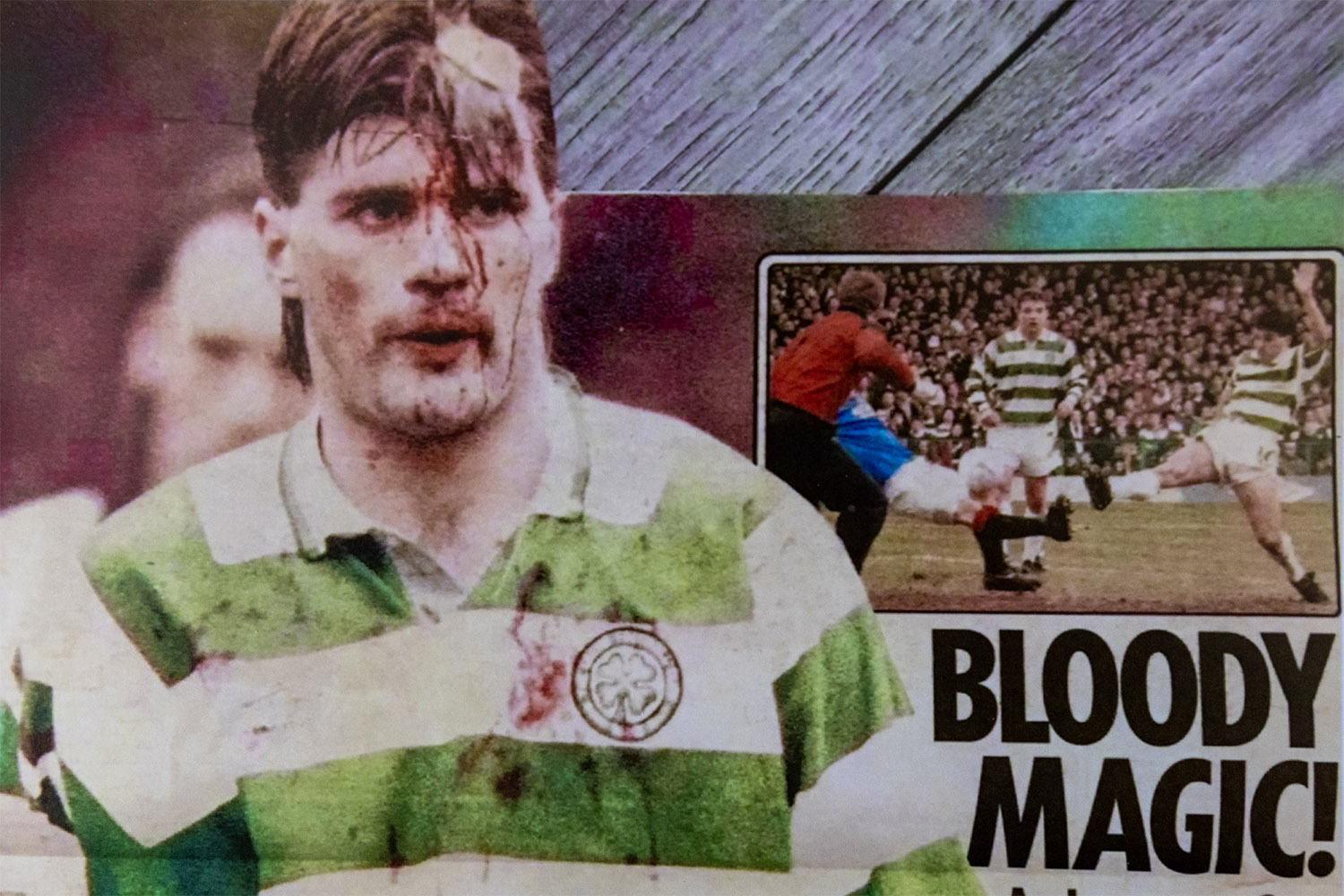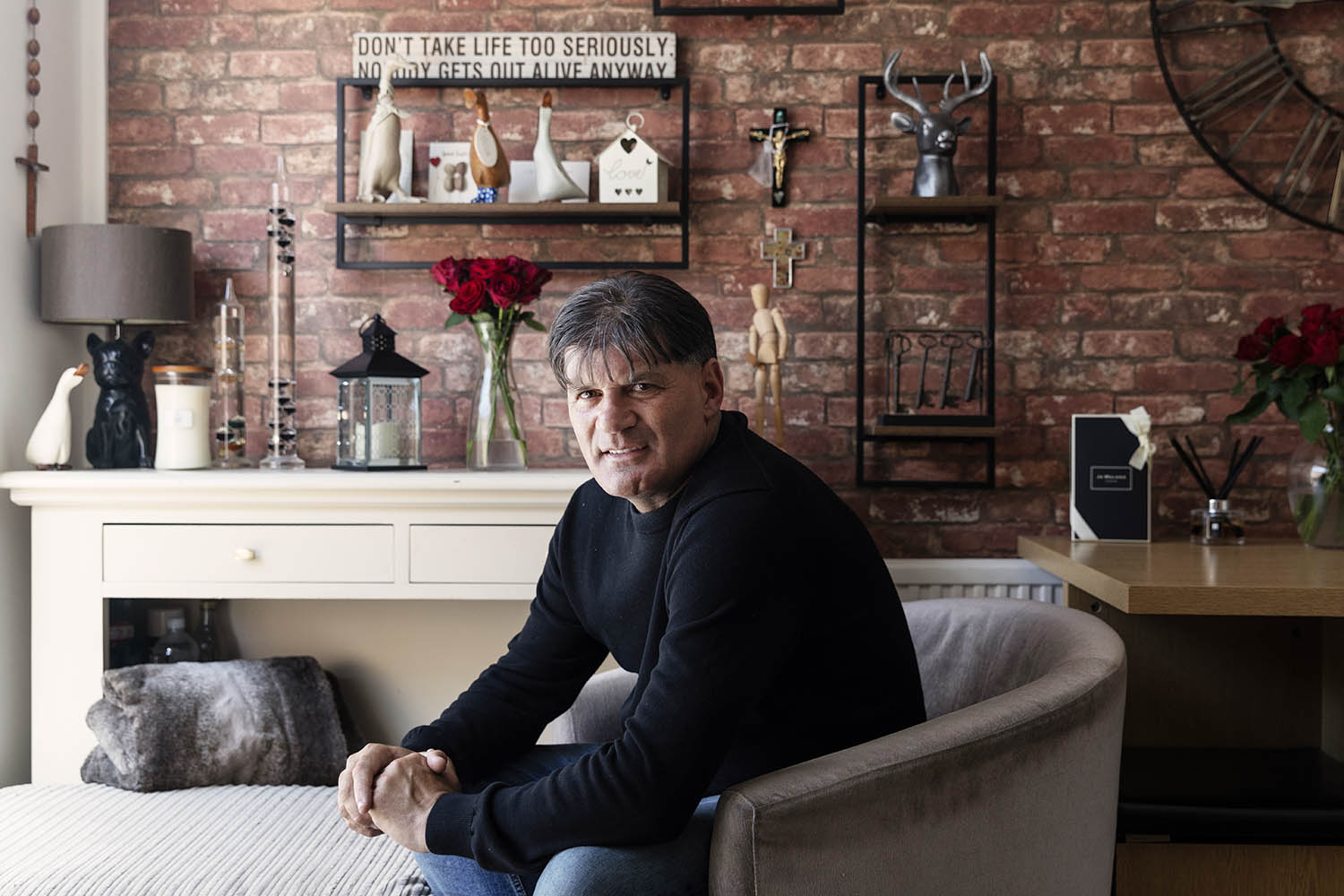Andy Payton keeps the photo as a treasured memory of his single season at Celtic, but 32 years later it serves as an eerie portent of the uncertainty he is now facing.
Payton’s face and Celtic shirt are covered in blood and his head is bandaged. After having five stitches in the wound, he returned to the pitch to score the winning goal with a volley in a 2-1 win over Rangers at Parkhead. The sight of rival striker Mark Hateley glowering in the background kept him entertained for years, but as he contemplates a “frightening” future, Payton is not laughing now.
The 57-year-old has invited The Observer to his home in Burnley to reveal that he has early onset dementia. He was diagnosed following a recent brain scan, but the picture in his scrapbook says just as much as his carefully chosen, occasionally repeated, words.
“It’s a bit of an iconic Old Firm picture because I’m just covered in blood,” he says. “I went off for five stitches, but came back on. We just got on with it in those days. Luckily it’s different now. I’ve only told close family members. My mum, my dad, my daughters, obviously my partner, and my place of work. Having played for Celtic and Burnley – decent clubs – it’s probably going to be out there at some point.
“I want to raise the awareness for the former players and to help other people. That is why I’m sitting here. I just want to get lads to go and get checked out.”
Payton is dressed in training kit and, if anything, looks fitter than he did during his 16-year playing career, which brought him 226 goals in 588 appearances for seven clubs. Payton has just returned from Burnley College, where he has spent the past 10 years working as a football coach after a brief spell managing in non-League following retirement.
But he says his neurologist is clear that his brain damage – “Half the brain’s damaged and it has shrunk a little bit” – was caused by football. With the patient support of his partner, who makes never-ending lists and reminders of his daily schedule, his day-to-day life is manageable, but he finds the future scary.
“I was just experiencing the usual symptoms – forgetfulness, loss of memory, headaches – but I wasn’t expecting to have early onset dementia,” Payton says. “It’s properly frightening, as you just don’t know what’s coming down the line. What’s going to happen in three, five years?

“The memory loss feels quite random. My daughter came round the other night and asked me what I’d had for tea. I’d had my tea an hour ago, but I just couldn’t remember.
“My partner more or less manages my day-to-day life so I know exactly what I’m doing, where I need to be, so I don’t forget anything. She’s started having to write things down for me.
Newsletters
Choose the newsletters you want to receive
View more
For information about how The Observer protects your data, read our Privacy Policy
“The neurologist who did my scan said there are 68 tracts in the brain, and 27 of mine are damaged. He also said my brain had shrunk a little bit. That’s half the brain that’s damaged, which explained how I’d been feeling. A brain scan doesn’t lie. The neurosurgeon said it’s from football, there’s no other thing it can be.”
Payton, who had problems with alcohol and gambling addiction after retiring from football but has been teetotal for 13 years, has been suffering from severe headaches and forgetfulness for some time and decided to have a brain scan after reading about his former Hull team-mate Dean Windass, who revealed he has been diagnosed with stage two dementia in January aged 56.
As strikers known for being good headers of the ball their careers followed a similar path, with Windass, scoring 234 goals in 732 appearances for 12 clubs, and the fate they are now facing, does not feel like a coincidence.
“I was an apprentice with Dean at Hull,” Payton says. “We did the exact training, heading the ball for hours on end, over and over again. A 90-minute session might be just about heading. I was a striker, so my job was obviously to put the ball in the back of the net.
“We would do heading practice for hours and hours, with balls fizzing in from the wing. It was just header, header, header, bang, bang, bang.
“We’d do it every day in training, sometimes for an hour and a half. When I think about it, I mean I must have headed the ball 10,000 times. I think heading should certainly be limited. In training it has to be limited. We did it for too long, hence the fact that I’ve ended up with early onset dementia at 57.”
With typical understatement, Payton says he has told his employers about his diagnosis in case there is media interest.
There are currently 33 former footballers taking a joint legal action in the High Court against the FA for failing to protect them against chronic traumatic encephalopathy (CTE), dementia and other neurological injuries. Payton is in the process of joining them, but for now his main motivation is encouraging other former players to seek help, even if the diagnosis might be frightening.
